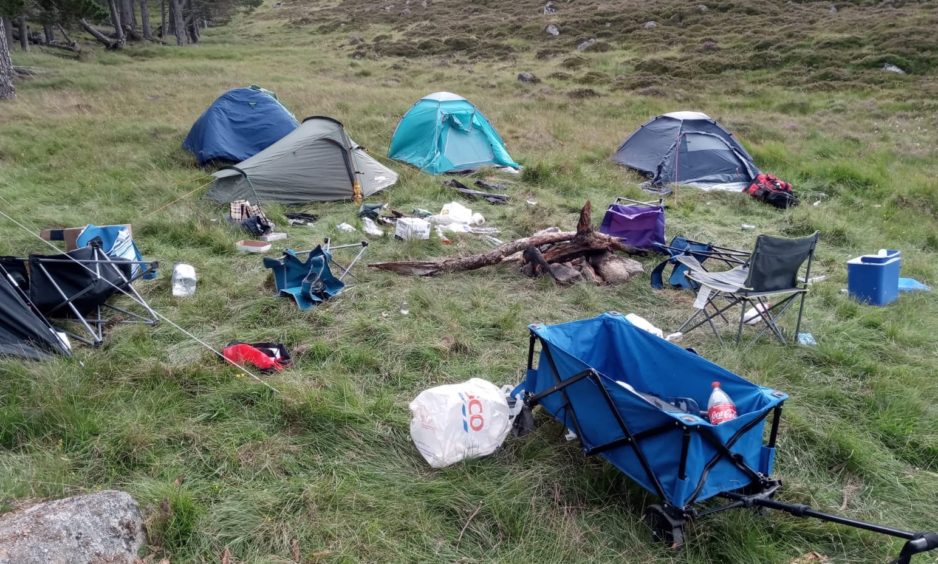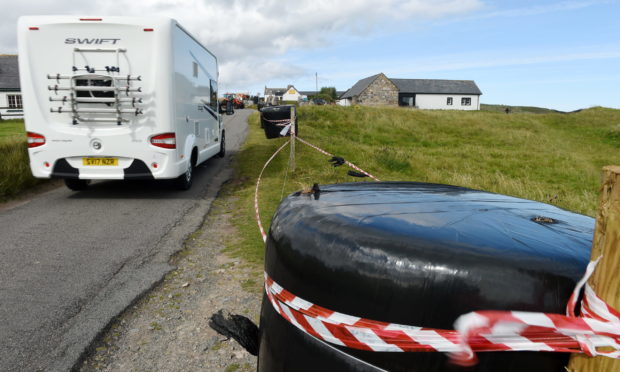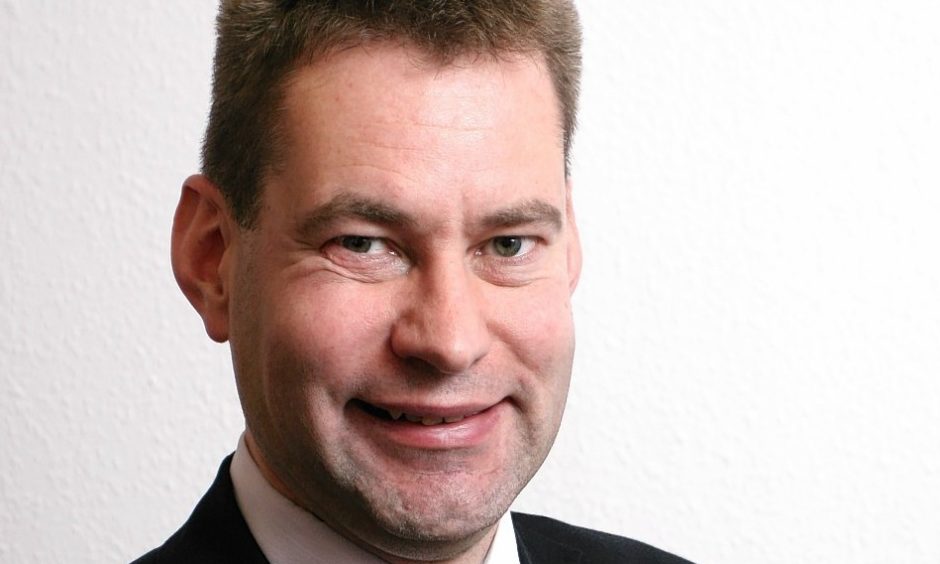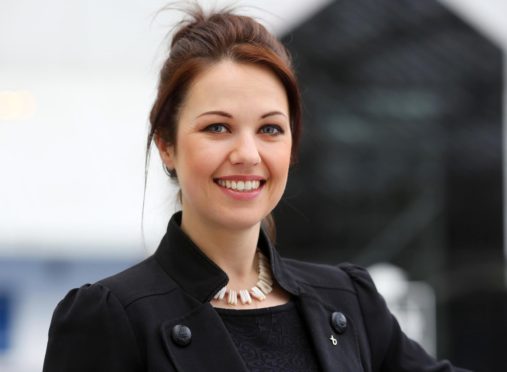The Scottish Government has been urged to take tougher action to crack down on dirty camping by working closely with councils, police, countryside rangers and landowners to tackle the problem.
The call was made by Mid Scotland and Fife MSP Murdo Fraser when he led a Holyrood Member’s Debate on tackling the problem.
A national summit, chaired by Tourism Secretary Fergus Ewing and convened by VisitScotland, will be held next week to look at the issues raised during the debate.
Mr Fraser suggested a system piloted by Perth and Kinross Council involving police working with countryside rangers could be introduced across Scotland. Other MSPs called for an expansion of the ranger service.
Under the Perthshire system, campers are visited and reminded of their responsibilities to camp responsibly and where necessary enforcement action is taken.
The approach also involves Scottish Fire and Rescue and local communities and has seen the development of a communication campaign to promote good behaviour.
The only remedies available to a landowner are through the civil courts, which is an inefficient, bureaucratic and expensive way of trying to resolve the problem, and would mean trying to identify the individuals involved. The law, as it stands, is simply not working.”
Murdo Fraser
Another approach that Mr Fraser suggested should be explored would be to extend the permit camping zones which exist in the Loch Lomond and Trossachs National Park to the rest of Scotland, although Mr Fraser conceded that creation of exclusion zones would be expensive, involving the introduction of by-laws by local authorities or national parks.
The Conservative MSP acknowledged that dirty camping was “already unlawful”, but it was “effectively unenforceable”.
“The only remedies available to a landowner are through the civil courts, which is an inefficient, bureaucratic and expensive way of trying to resolve the problem, and would mean trying to identify the individuals involved. The law, as it stands, is simply not working,” Mr Fraser.
The challenge, it was said, is to educate people to treat the countryside with respect and to enforce the law.

Mr Fraser said the problem was a long-standing one, but it had been worse this year – perhaps as a result of the Covid restrictions preventing people from holidaying abroad.
The problem was “particularly acute” in rural Perthshire around lochs like Rannoch, Tummel, Tay and Earn, and in Glenshee and Glen Lyon.
Litter, human waste and discarded equipment
Campers had cut down trees, lit fires, played loud music and disturbed locals. Litter, “human waste”, and equipment were left behind including, in some cases, tents and sleeping bags.
MSPs from across the country described the mess left by dirty campers in their areas and drew a distinction with wild campers, who go into the wilderness and leave no trace of where they have been.
Caithness Sutherland and Ross MSP Gail Ross raised the issue of camper vans stopping in large numbers in inappropriate places.
Banffshire and Buchan Coast MSP Stewart Stevenson said he had learnt to camp in the Scouts and suggested education was the key to preventing people acting irresponsibly in the countryside. Mr Stevenson suggested more efforts should be made to encourage organisations like the Scouts, Boys’ Brigade and other organisations that teach boys and girls about camping.
SNP Highland MSP Maree Todd drew attention to Boris Johnson’s holiday in Wester Ross and accused the prime minister of lighting a fire “instead of a stove” without the local crofter’s permission.
Mr Fraser accused her of making a “tiresome political point” that was “not worthy of her”.
Responding on behalf of the Scottish Government, Rural Affairs Minister Mairi Gougeon announced that a summit would be held on Monday. She said work was being carried out with those hiring motor homes to ensure there was proper management of waste disposal, anti-littering campaigns had been launched and cash was being spent on upgrading toilet facilities in the countryside.


